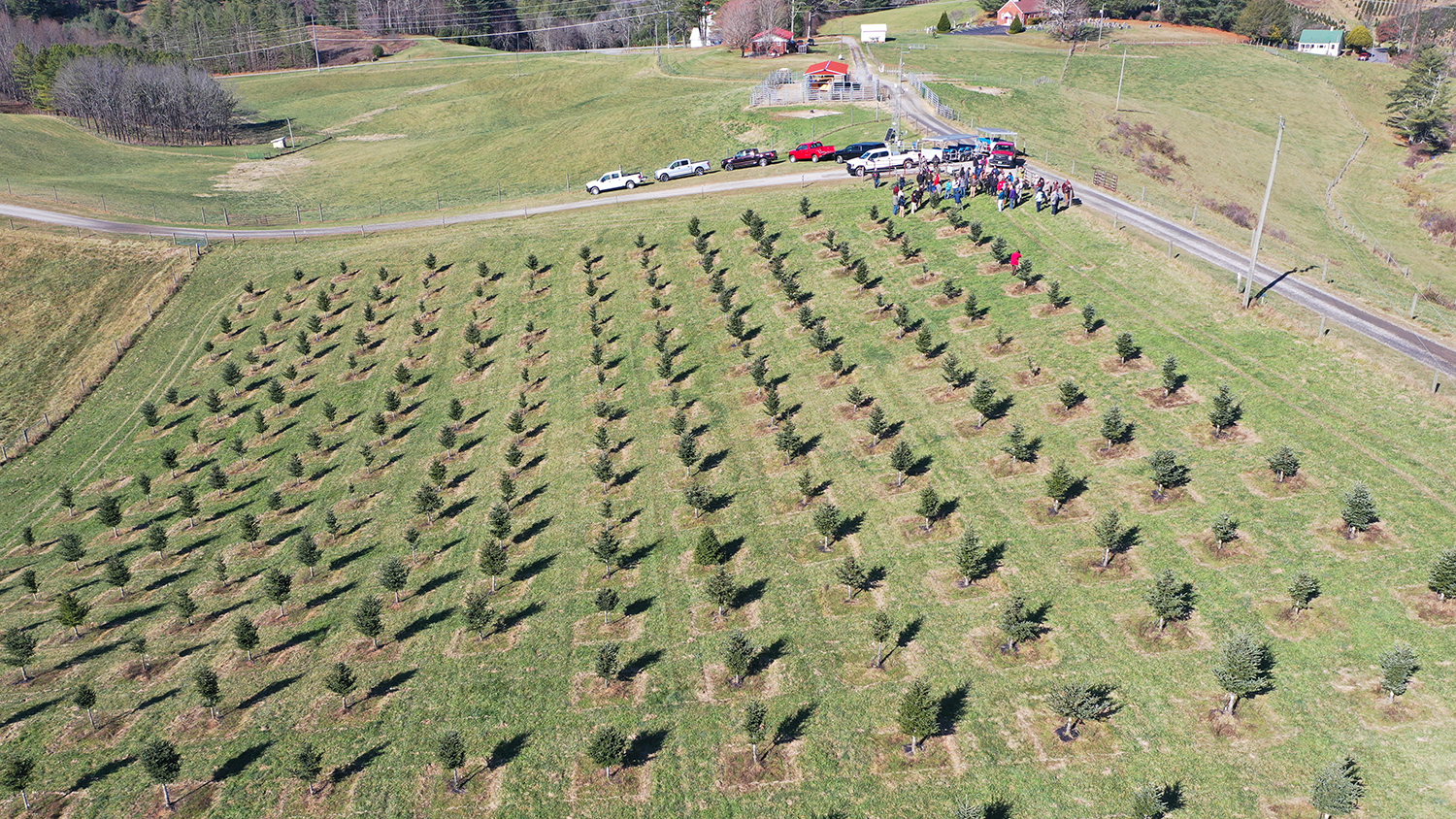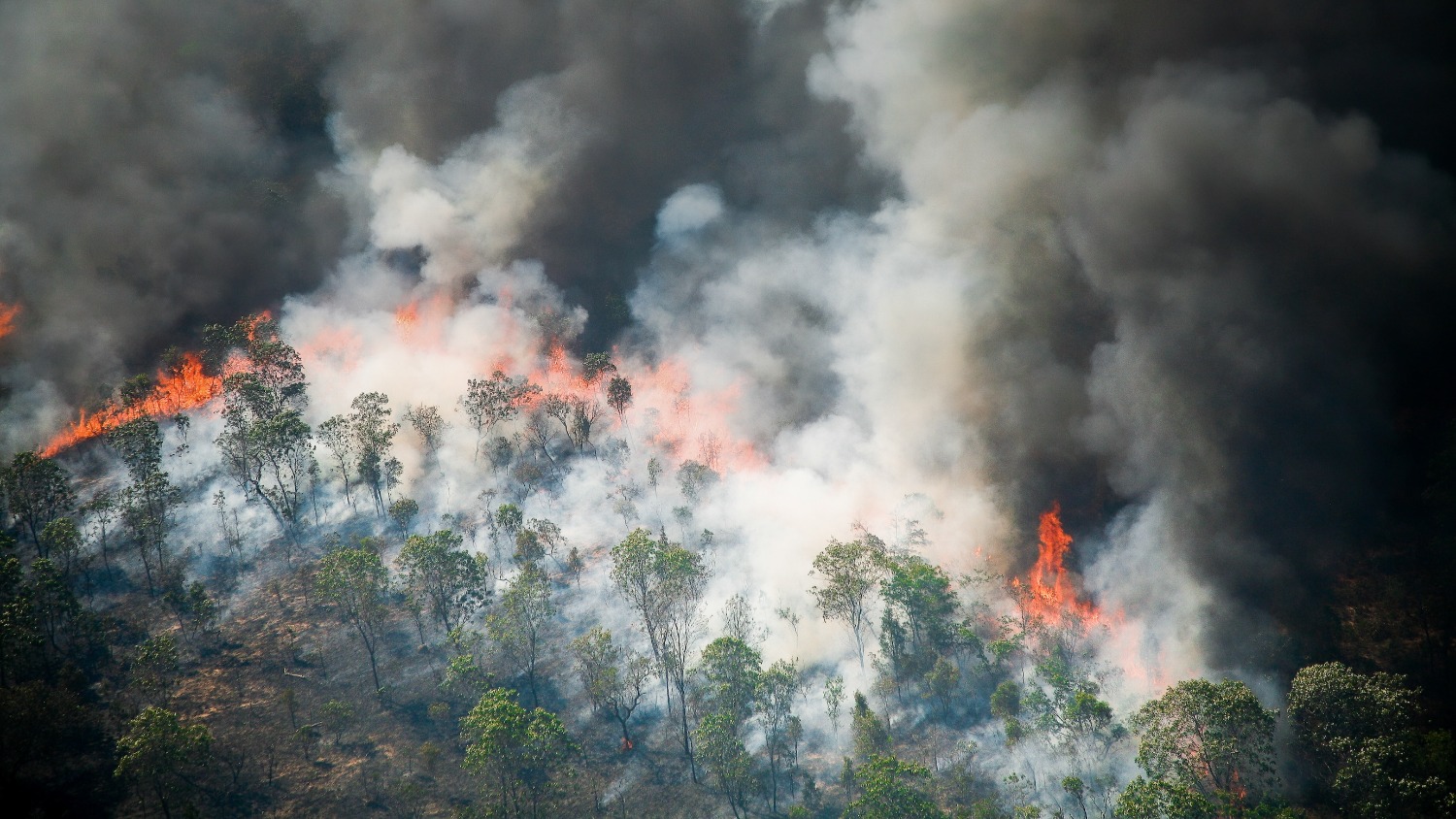New Facility to Produce First Crop of Genetically-Improved Christmas Trees

For more than two decades, NC State researchers have studied the use of genetics to grow what they call “elite” Christmas trees. Now they’re one step closer to harvesting the first batch of seeds for growers to plant in their own fields.
In partnership with the North Carolina Department of Agriculture and Consumer Services, NC State’s Christmas Tree Genetics Program plans to construct a 3,200-square-foot seed processing facility at the Upper Mountain Research Station in Ashe County. It will be funded by a nearly $385,000 grant from the North Carolina Tobacco Trust Fund.
The facility will process the seeds of genetically-improved Fraser firs originally planted at the Upper Mountain Research Station in 2018. The seeds represent genetics from a select group of trees identified by the Christmas Tree Genetics Program for their superior appearance, growth rate and needle retention.
“We are excited for this opportunity to provide elite Fraser fir genetics directly to North Carolina growers and look forward to many more years of productive collaboration with the North Carolina Department of Agriculture,” said Justin Whitehill, an assistant professor of forestry and environmental resources and the lead researcher for the Christmas Tree Genetics Program.
Fraser fir is native to North Carolina’s Appalachian mountains and represents more than 98% of all the Christmas tree species grown and sold in North Carolina. The species is largely popular among holiday shoppers because of its soft needles, woodsy aroma, excellent needle retention, symmetrical pyramid shape and sturdy branches.
Whitehill’s predecessor, John Frampton, who established the Christmas Tree Genetics Program in 1996, evaluated some 30,000 Fraser firs trees from across western North Carolina and tested them in an effort to identify those with the best genetic characteristics. Frampton eventually whittled it down to 25 varieties.
Prior to his retirement in 2019, Frampton and other researchers in the program repeatedly cloned these select trees and planted them on a six-acre orchard at the Upper Mountain Research Station. The orchard contains more than 1,000 Fraser firs. Once the trees mature, Whitehill and others will begin collecting their cones.
Fraser firs use cones to spread their seeds, according to Whitehill. As the cones dry out, they explode and the seeds are released. A single cone can contain up to 100 seeds. It generally takes 15 years for Fraser firs to produce cones. The trees at the Upper Mountain Research Station began producing cones this year.
Whitehill said the Fraser firs at the Upper Mountain Research Station will likely produce enough cones for commercial harvest some time between 2026 and 2028 — the anticipated timeframe of completion for the new seed processing facility.
The North Carolina Department of Agriculture will process the cones and extract the seed, cleaning them and making them available to North Carolina growers for planting. The agency also plans to submit the seeds for certification through the United States Department of Agriculture, which would make them the first and only certified Christmas tree seed in the country.
“Our goal is to establish the Upper Mountain Research Station as the epicenter of Christmas tree science for the U.S. if not the world. We want to ensure North Carolina is thriving as one of the top producers of Christmas trees in the nation,” Whitehill said.
North Carolina currently has 38,893 acres devoted to Christmas tree production, making it the second leading producer in the U.S. The state’s growers employ more than 7,000 workers and generate an estimated $300 million annually. With genetically-improved Fraser firs, growers could generate a higher return on investment.
The average wholesale price of a genetically-improved Fraser fir is $76.50 compared to $45 for a regular tree. Growers typically plant 1,600 trees per acre, meaning those who purchase and plant Fraser firs from the Upper Mountain Research Station could gain up to $47,250 more per acre than their competitors planting unimproved genetics.
In addition to making these elite genetics available to North Carolina growers, Whitehill and his colleagues plan to utilize the new facility at the Upper Mountain Research Station for further research, specifically progeny testing to gain a better understanding of how second-generation offspring compare in quality and performance to the original batch of seeds.


